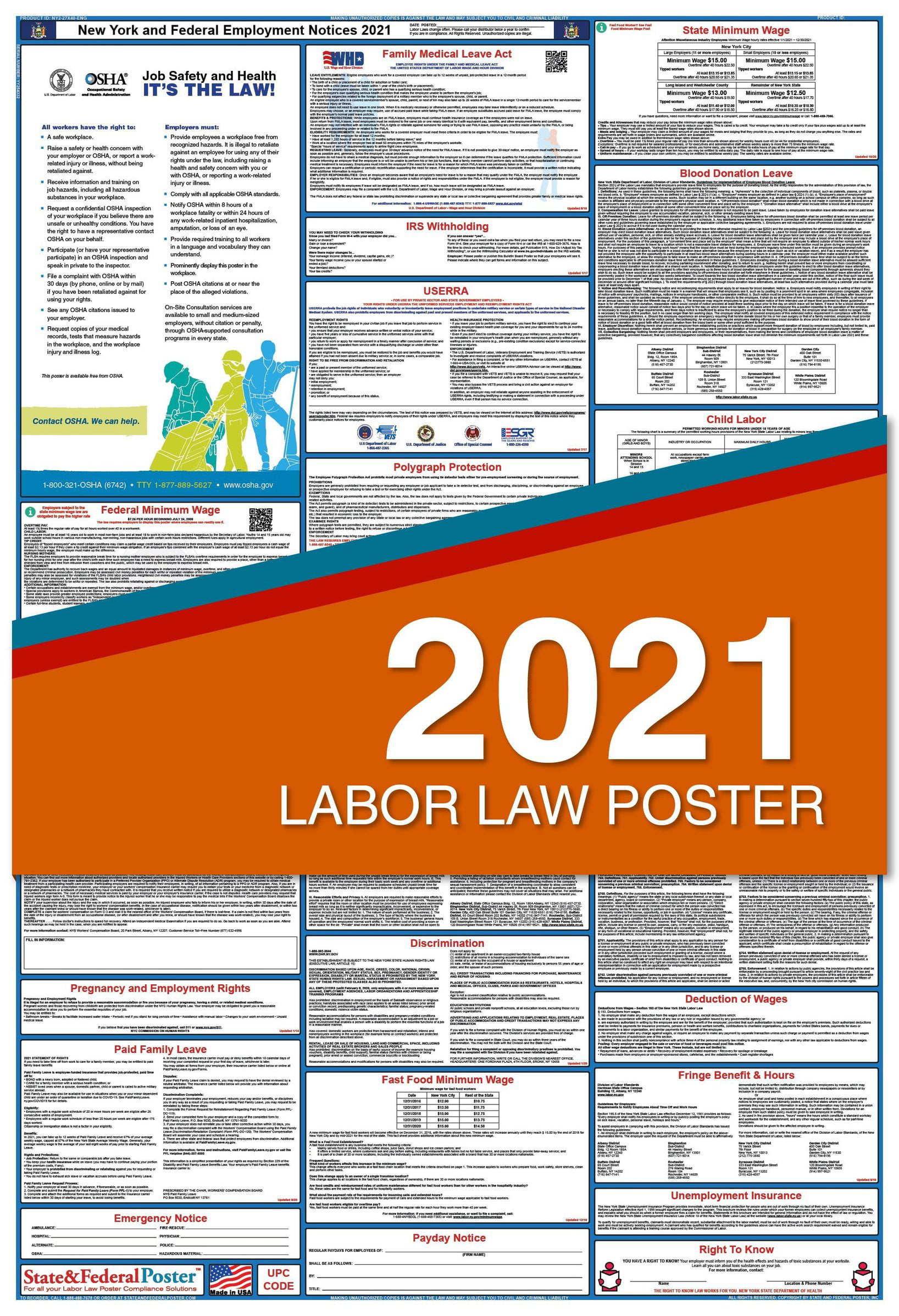New York State Labor Laws: Understanding Your Rights and Responsibilities

Minimum Wage in New York
The minimum wage in New York varies depending on your location and the size of your employer. As of December 31, 2020, the minimum wage in New York City for employers with 11 or more employees is $15.00 per hour. For employers with 10 or fewer employees, the minimum wage is $14.00 per hour. In Long Island and Westchester County, the minimum wage is $14.00 per hour, while in the rest of the state it is $12.50 per hour.
Overtime Pay
New York State labor laws require that employers pay non-exempt employees overtime pay for all hours worked over 40 hours in a workweek. The overtime rate is one and a half times the employee's regular rate of pay. Some employees, such as those in executive or administrative positions, may be exempt from overtime pay requirements.
Workplace Safety Regulations
New York State labor laws also require employers to provide a safe and healthy workplace for their employees. This includes providing training, safety equipment, and following regulations related to hazardous materials and chemicals. Employers are also required to report any workplace accidents or injuries to the New York State Department of Labor.
Expanding Your Knowledge of Labor Laws in New York
While this article has covered some of the most important labor laws in New York, there are many other regulations and requirements that employers and employees should be aware of. For more information, you can visit the New York State Department of Labor website or consult with a legal professional.
FAQs
Q: What should I do if I believe my employer is violating New York State labor laws?
A: If you believe that your employer is violating labor laws in New York, you should first try to discuss the issue with your employer. If this does not resolve the issue, you can file a complaint with the New York State Department of Labor.
Q: Do all employees in New York have the right to overtime pay?
A: No, some employees in New York may be exempt from overtime pay requirements, such as those in executive or administrative positions.
Q: What is the minimum wage in New York?
A: The minimum wage in New York varies depending on your location and the size of your employer. As of December 31, 2020, the minimum wage in New York City for employers with 11 or more employees is $15.00 per hour. For employers with 10 or fewer employees, the minimum wage is $14.00 per hour. In Long Island and Westchester County, the minimum wage is $14.00 per hour, while in the rest of the state it is $12.50 per hour.
Q: Are employers in New York required to provide workplace safety training?
A: Yes, employers in New York are required to provide workplace safety training to their employees.
Conclusion
Understanding your rights and responsibilities under New York State labor laws is essential for both employers and employees. By following these laws, employers can ensure that they are treating their employees fairly and legally, while employees can ensure that they are receiving the wages and benefits to which they are entitled. If you have any questions or concerns about New York State labor laws, be sure to consult with a legal professional.

Benefits and Drawbacks
- Benefits:
- Provides protection for employees against unfair treatment and wage theft.
- Helps to ensure safe and healthy working conditions for employees.
- Encourages employers to maintain fair and legal employment practices.
- Drawbacks:
- May increase costs for employers in terms of wages, benefits, and training.
- May result in increased paperwork and administrative responsibilities for employers.
- May limit flexibility for employers in terms of scheduling and job duties.
Keywords
New York State Labor Laws, labor laws, New York, minimum wage, overtime pay, workplace safety regulations
